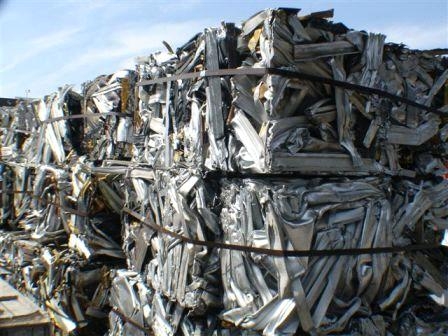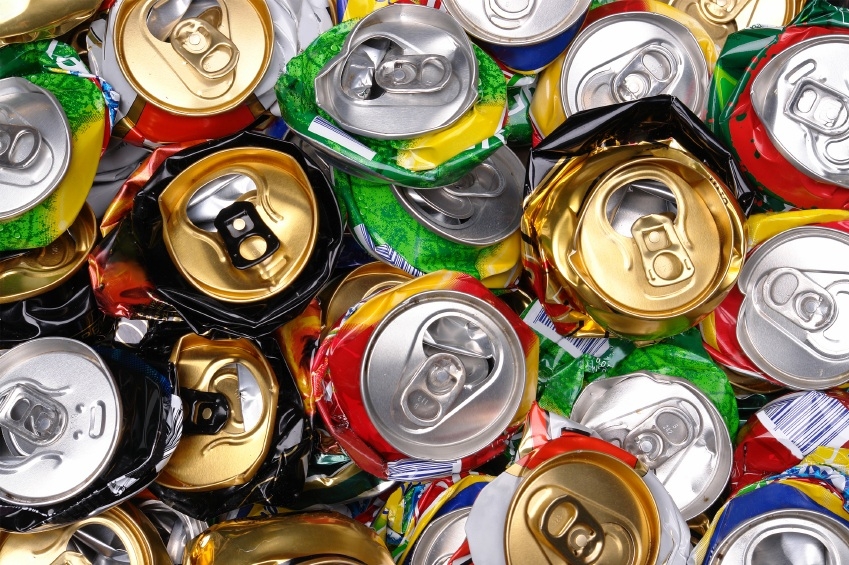Aluminum is one of the most wide-spread metals on the Earth. Aluminum scrap market is unsteady, though; aluminum scrap is recycled on large-scale in the United Kingdom and worldwide. Currently due to numerous reasons the aluminum industry is slumping influencing scrap trading as well.
Aluminum industry in the United Kingdom
Aluminum is the third most spread element in the world and the second used metal. Aluminum industry is a highly-developed system of subbranches, which encompasses mining, aluminum manufacturing from raw bauxite, refining process, and, of course, aluminum recycling. Aluminum is a soft, malleable and lightweight metal. Due to its non-ferrous nature aluminum is non-magnetic. Because of aluminum physical qualities it is used for numerous purposes in producing of different commodities, such as automobiles, aircraft, electronics, computers, cookware, etc.

Over the past five years, at a time of global economic crises, the aluminum industry experienced a decline in production, which resulted in closing of two major smelting plants in Anglesey and Lynemouth in the United Kingdom. Volatile metal prices combined with the high energy costs affected all the subbranches of the industry. However, recently the economic growth seems to facilitate the aluminum industry recovery to some extent. Though, no significant growth is observed yet, there is a positive tendency. Currently, more than 100 enterprises are involved in aluminum production and the industry is estimated to have revenues of around 2 billion pounds per year.
Aluminum scrap market in the United Kingdom
Aluminum scrap has been collected and recycled since 1900s and spread significantly after World War II. Sources for aluminum scrap are numerous, anything made of aluminum or containing aluminum may be recycled without altering of the metal's properties. Aluminum scrap is valued for its purity, so the less contaminants, such as rubber, tar or other metals, contains the scrap commodity, the more valuable it is.
The most considerable source of aluminum scrap is beverage cans. In the United Kingdom more than 25% of all the cans are produced from aluminum, which equals to approximately 5 billion each year. According to statistics, about 50% of cans are recycled worldwide and the figures in Britain are similar, while in the world's leading aluminum can recycler, Brazil, these figures amount to 98% of country's can production. Can recycling is well-elaborated, so that all canned-products consumers may contribute to this process. Cans are collected throughout the country, sorted into groups according to aluminum percentage and then just melted. The recycled aluminum may be used to produce other final products or for aluminum ingot manufacturing. An aluminum can, given to recycling, may be turned into new final product within 6 weeks.

Advantages for aluminum recycling
Aluminum recycling is economically more efficient than aluminum production from raw bauxite mineral. Even when we take to account all expenses on scrap collecting, transportation and operation, recycling saves considerable sums of money. In the first place, it is due to the fact, that aluminum recycling process consummates only 5% of the energy amounts needed to produce the same amounts of aluminum from bauxite. To make it more demonstrable, only one recycled can saves enough energy for three hours of TV working. Besides, recycling of 1 kg of aluminum scrap saves up to 8kg of bauxite and 4kg of other chemical products, needed for manufacturing process.
Another pro for aluminum recycling is the ecological friendliness of the process, which is also primarily due to energy efficiency and mineral resources savings. In addition, aluminum scrap collecting and recycling industry, especially when we talk about beverage cans, implies litter sorting, and, thus, results in more efficient litter utilization. If your family consumes a lot of canned products, you may get profit from it: get some cash and help environment.
Aluminum Prices in the United Kingdom
Hardly had aluminum industry overcome the crisis of the previous decade, when new problems appeared. The prices for aluminum scaled down by about 25% since last September, which suggests the lowest prices within the 6 year period. The main reason for that is the growing export from China. As the biggest metal producer and consumer, China has enough resources available to influence the global aluminum market. We may currently observe it in the European Union, where surpluses of cheap China's metal products reduced the demand for goods of national manufacturers, and as result aluminum prices. Despite the fact, that a large number of highest-cost aluminum smelters operate in China, making their aluminum about 14% more expensive, for the country leaders it is more desirable to save jobs conducting lossmaking business, than to cut production, so that to stabilize the supply-demand ration. Jorge Beristan, the analyst of Deutsche Bank underlined, that unless China takes price cues, countries suffering losses will take measures on protectionism.

Considering high energy prices throughout Europe and aluminum demand decline, leading aluminum-smelters throughout Europe are going to cut their capacities. But if the situation with China's supplies remains the same, it won't make any significant difference.
Possibly, on taking some stringent measures the industry will recover swiftly. Meanwhile, scrap trading and recycling, being not so energy-consuming, will operate apart from aluminum-smelters.
Reference information
Anglesey Aluminium metal Ltd. was one of the largest aluminum smelting enterprises in the United Kingdom and the biggest employer in North Wales. Founded in 1971 it was a joint venture between Rio Tinto Group and Kaiser Aluminum with capacity of 142,000 tons per year. The smelter was shut in 2009.
The Alcan Lynemouth Aluminum Smelter is situated near Ashington, Northumberland. It is owned by a Canadian company Alcan. It was founded in 1974 and ceased production in 2012 because of high energy costs.
